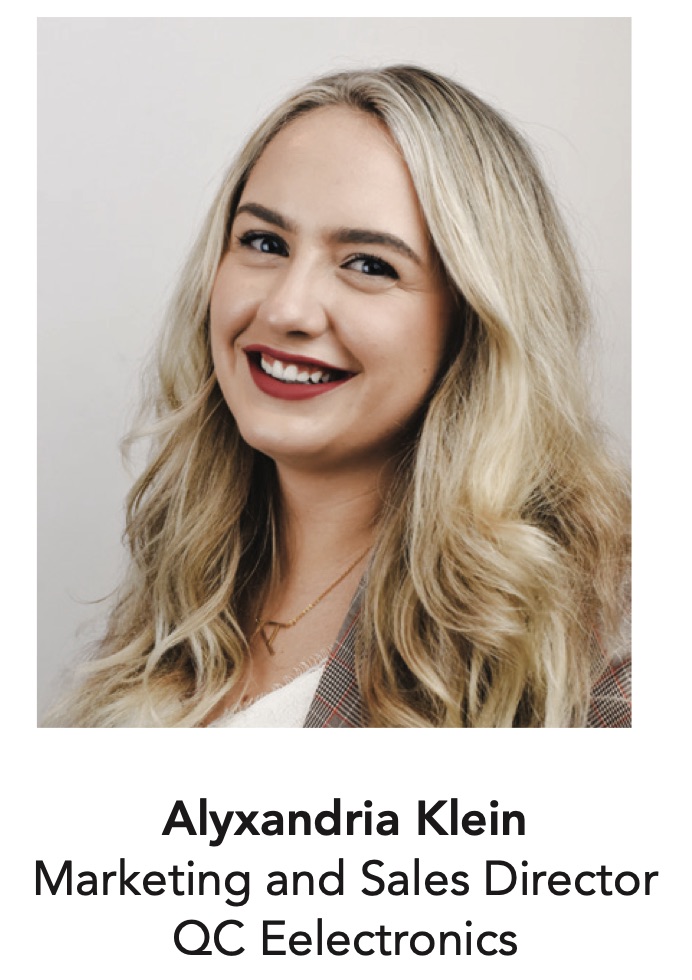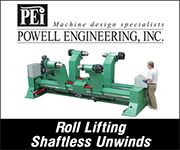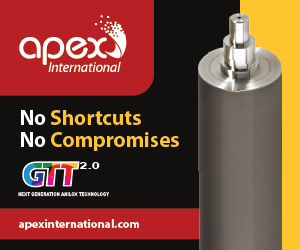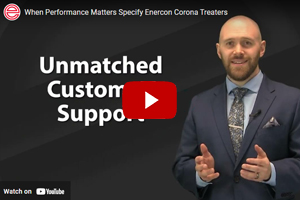Understanding Corona Treating with QC Electronics
- Published: April 24, 2023
What are factors that affect corona treatment that should be observed and understood?
 Several factors can affect corona treatment and should be observed and understood to achieve the desired surface modification. Here are some factors that can affect corona treatment:
Several factors can affect corona treatment and should be observed and understood to achieve the desired surface modification. Here are some factors that can affect corona treatment:
- Material Type: The type of material being treated can impact the effectiveness of corona treatment. Non-porous materials like plastics and metals are more suitable for corona treatment than porous materials like fabrics and paper.
- Surface Characteristics: The surface characteristics of the material, such as its roughness, porosity and composition, can impact the corona treatment process. Surfaces with low surface energy, such as those containing low surface tension additives, require higher power settings.
- Treatment Conditions: Treatment conditions such as the corona discharge power, frequency and exposure time can significantly impact the surface modification of the material. The optimal conditions for corona treatment depend on the type and characteristics of the material being treated.
- Atmospheric Conditions: The atmospheric conditions, such as temperature, humidity and air composition, can impact the corona treatment process. High humidity can reduce the effectiveness of corona treatment, while dry air can improve the treatment. It is important for corona treaters to be able to accommodate high humidity environments.
By understanding and observing these factors, it is possible to optimize the corona treatment process for specific materials.
What are key factors converters should pay attention to when choosing a corona treater manufacturer or supplier?
When choosing a corona treater manufacturer or supplier, converters should pay attention to several key factors to ensure they get the best product and service. Here are some factors to consider:
- Expertise and Reputation: Look for a manufacturer or supplier with a good reputation and expertise in corona treatment technology. Consider their experience in the industry, the quality of their products and their level of customer service.
- Customization and Flexibility: A good corona treater manufacturer or supplier should offer customizable solutions that can be tailored to the specific needs of the converter’s operation. They should be able to provide solutions that are flexible enough to accommodate different materials, applications and production requirements.
- Technology and Innovation: Look for a manufacturer or supplier that can provide innovative solutions that can enhance production efficiency and reduce costs.
- Technical Support and Service: A reliable corona treater manufacturer or supplier should provide technical support and service to help converters install, operate and maintain their equipment. They should offer training and troubleshooting assistance, spare parts availability and on-site service if necessary.
- Cost-effectiveness: Cost is always a consideration when choosing a corona treater manufacturer or supplier. Converters should compare the pricing of different suppliers and consider the overall value they provide in terms of quality, customization, innovation and service.
How can I accurately measure surface energies?
Surface energy is a key property that determines how well a material can bond with another material. Dyne testing has been a commonly used method to measure the surface energy of a material. However, the accuracy of dyne testing has been widely debated, and it is now understood that surface analyzation devices should be used instead. Surface analyzation devices use objective and automated methods to measure the surface energy of a material. These devices use a variety of techniques, such as contact angle measurement or surface energy mapping, to provide accurate and reliable results. These devices can also measure the surface energy of a wider range of materials, including metals, ceramics and polymers. QC Electronics offers free surface analyzation and reports. This service provides valuable information to companies and manufacturers, helping them to optimize their printing, coating and adhesion processes.
More questions? Struggling with adhesion and need advice? Contact sales@qcelectronics.com.













